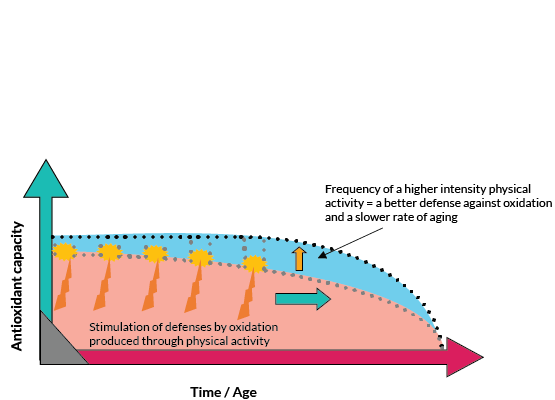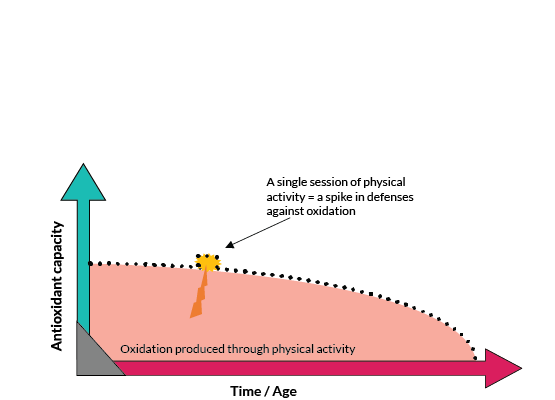Moderate physical activity as part of everyday life
According to Dr. Anne Fabiny, a geriatrician and assistant professor of medicine at Harvard Medical School, there is a remedy similar to the fountain of youth: it is exercise. As described in the recent work of the famous Harvard University (Living Better and Longer, Harvard Health Publications, 2010):
- Exercise reduces your risk of being affected by a myriad of diseases, helps you maintain strong,
healthy bones, and helps maintain your vitality and health independence as age progresses. Learn more
Exercise promotes good health by acting on the following points :
- Decreased blood pressure
- Improved heart efficiency
- Lowering of bad cholesterol (LDL) and triglycerides, raising of good cholesterol (HDL)
- Attenuation of the predisposition to form blood clots
- Increased muscle volume and strength
- Improved glucose management and reduced risk of diabetes
- Decreased body fat and the likelihood of weight gain
- Improved mood by easing anxiety and fighting depression
- Reduced risk of dementia and cognitive decline (and factors contributing to delaying the onset of these disorders in those over 65)
- Attenuation of sleep disorders
- Prevention of colon cancer and potentially breast and prostate cancer
- Limitation of the risk of gallstones
- Maintenance and improvement of bone density; reduced risk of osteoporosis.
(Harvard Health Publications, 2010. Taylor, 2013. Physical activity is medicine for older adults.)
- Staying active improves mood and mental functions. By strengthening your muscles and eliminating your excess weight, you relieve your aching joints.
- Some people discover that regular exercise allows them to reduce their use of medications, such as treatments for hypertension or diabetes, thereby reducing their health costs and mitigating adverse effects.
A study on moderate exercise found even greater benefits on longevity: an additional 3 to 5.7 years of life depending on the frequency of activity (Americans aged 65 and over, Living Better and Longer, Harvard Health Publications, 2010).
The beneficial effects of physical activity on longevity and aging come largely from a stimulation of our natural defenses against oxidation. Repeated physical activity helps maintain these antioxidant defenses at a consistently higher level. A review of more than 50 pages of recent literature reviews the importance of this approach to human health (Ristow and Schmeisser, 2014. Mitohormesis – promotion and health and lifespan by increased levels of reactive oxygen species)See figure
Physical activity stimulates our defenses against oxidation


It is recommended to practice aerobic physical activity of moderate intensity for at least 2.5 hours (150 minutes) per week or, at least, 1.15 hours (75 minutes) of a high intensity activity, or a combination of both.
- During an activity of moderate intensity you are capable of speaking, but unable to sing; during an activity of high intensity, you would be capable of saying a few words without having to take a breath.
- Moderate activities include lawn mowing, brisk walking, treadmill, skating and cycling.
- High intensity activities include running, playing basketball, swimming, playing soccer and cross-country skiing.

